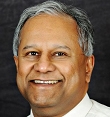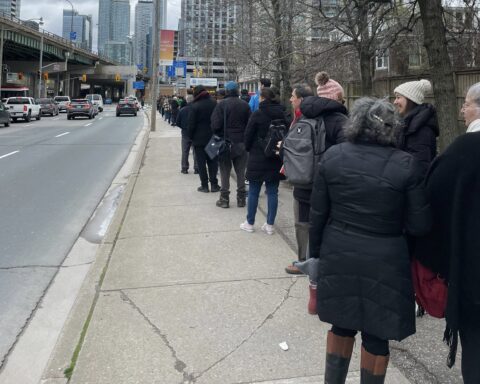Thanks to Prime Minister Stephen Harper, “Committing Sociology” has acquired a certain cachet. “Add Committing Geography to the mix,” says Harald Bauder, the academic director at the Ryerson Centre for Immigration and Settlement (RCIS).
The professor is getting ready to bring together both these areas of study at this month’s 2013 RCIS conference to discuss the future of immigration and settlement across the world and in Canada. That the issues have been and will be precarious in the years to come was highlighted by just two news stories a day after talking to Bauder at his Ryerson University offices in the Department of Geography.
One was about the populist United Kingdom Independence Party (UKIP) making sweeping gains in local British elections and finishing second in a parliamentary by-election. Strict controls on immigration is one of its main agendas and even before its latest victories, UKIP rhetoric had made British Prime Minister David Cameron harden his stance against immigration. For the record, Cameron had earlier dismissed the UKIP as “a bunch of fruitcakes, loonies and closet racists”.
The second story was about revelations that a string of unsolved killings in Germany may have been a cold-blooded neo-Nazi campaign against ethnic Turkish immigrants. The case means a lot to Germany’s three million ethnic Turks, many of whom still feel marginalized by society despite having lived in the country for decades or even having been born there.
Lack of public debate
These two stories, along with countless other similar ones from across the world, paint a grim picture of the challenges confronting the immigration and settlement sector. The sector in Canada is well established with various relevant laws in place that together present a welcoming environment for new immigrants. But Bauder is cautious about the incremental changes in immigration policy without much public debate. He said the RCIS conference is an attempt to fill the void of informed discussion that is increasingly missing in Canada.
He finds it ironic that as Europe initiates reforms in its immigration and settlement policies by taking lessons from Canada’s successful measures, Ottawa seems keen to head in the opposite direction. “While doing so, Canada seems to have learned lessons from the ‘mistake’ made by countries like Germany which gave guest workers the right to stay and bring in their families. Canada is avoiding giving permanency to temporary foreign workers by imposing the four-year time limit to their stay in the country,” said Bauder.
Coming weeks after immigrants being linked to attacks carried out in the US and arrests in Canada linked to a plot against VIA Rail, trans-border terrorism is also a topic that is bound to come up for discussion.
Open borders
With borders across the world becoming less porous, there is a growing legion of “no border” or “open border” activists.
A website dedicated to the idea, Open Borders: The Case, has been set up by Vipul Naik, a Ph.D. candidate in mathematics at the University of Chicago. It suggests the concept as an efficient, egalitarian, libertarian, and utilitarian way to double global GDP. The website states the term “open borders” is used to describe a world where there is a strong presumption in favor of allowing people to migrate and where this presumption can be overridden or curtailed only under exceptional circumstances.
The open border concept is sure to come up for discussion at the RCIS conference when Bridget Anderson, Centre on Migration, Policy and Society at Oxford University makes her keynote speech. Her most recent book, Us and Them? The dangerous Politics of Immigration Control, dwells on the issue. Reinforcing the message will be the film “The End of Immigration” that will also be screened at the conference.
While the aim of the conference is to integrate migration theory with practice based on values of inclusion and respect for cultural diversity, the singular message that Bauder wants to put out is the need to create a fair path to permanency to all migrants in Canada. And he wants this to happen based on evidence-based policy, rather than ideology.
As Alan Broadbent, Chairman of the Maytree foundation wrote in a recent opinion piece, “When we are developing policy without the information that describes the reality before us, we are working in the dark, and subject to the feelings of Canadians as reported by the government. No matter what stripe of government we are talking about, this is not a good idea.” – New Canadian Media
Ranjit is a Toronto-based writer with interest in Canadian civic affairs, immigration, the environment and motoring. Maytree and Al Jazzera English alumnus.





